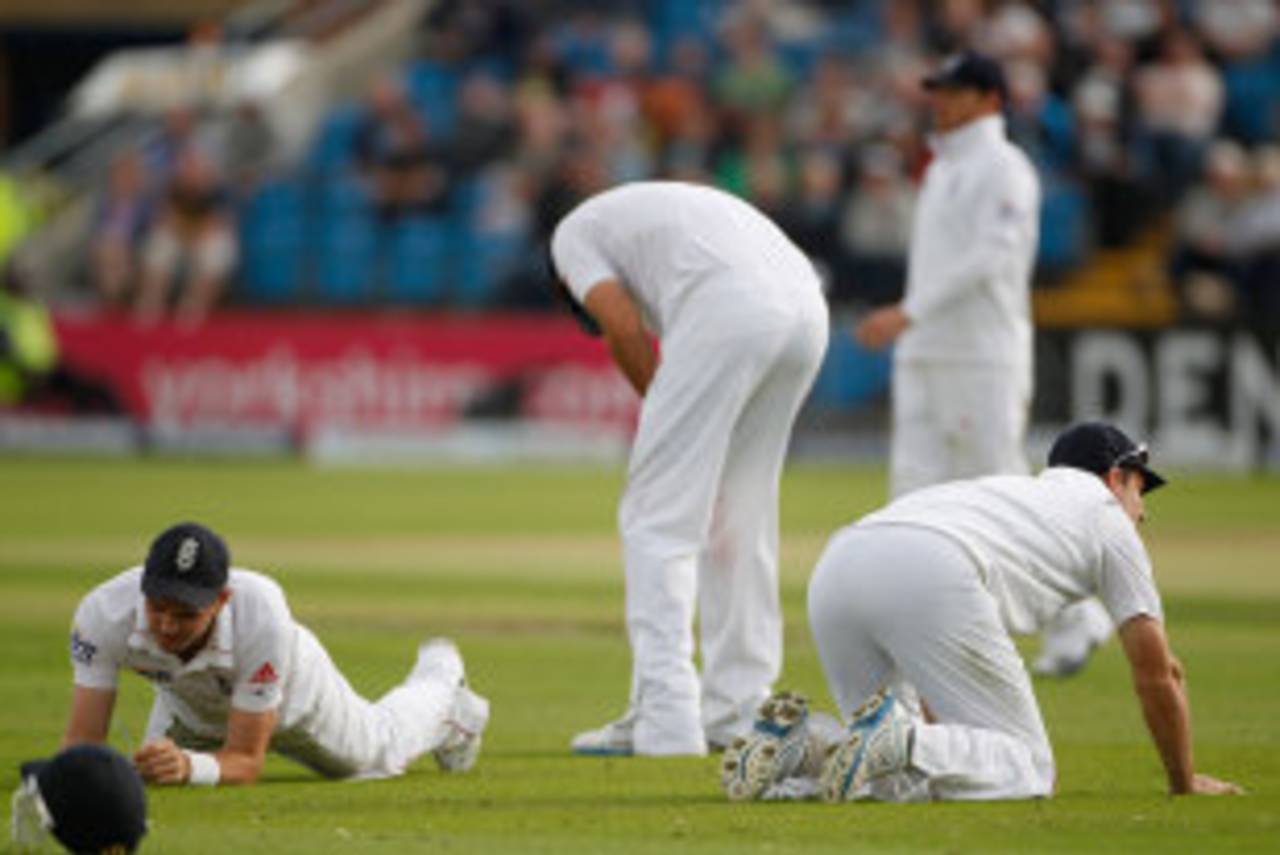England might be forgiven for considering themselves unfortunate after the first day of the Headingley Test. They might bemoan the dropped chances, the catch from a dead ball and the lack of assistance they found from the green-tinged surface on which they inserted the opposition. They might curse that fact that Alviro Petersen got off the mark with a four edged past the slip cordon, that the sun came out shortly after South Africa started to bat and that the alignment of Jupiter in the house of Orion made this a tough day for bowling.
But great teams do not trust to luck, they shape their own fortunes.
So, while it may be tempting to curse their luck, England would be ill-served in the long run by doing so. It is not poor luck to drop catches; it is not poor luck to select an unbalanced side; it is not poor luck to gamble on inserting the opposition and then wasting any assistance that might have been available because some of your bowlers have failed to maintain a good line. And it not poor luck for a leading bowler to go into a Test match with a flaw such as bashing into the stumps that might be considered an accident waiting to happen.
Indeed, England might consider themselves fortunate to have ended the first day of this game just about still on level terms. They might consider themselves flattered by the close of play scorecard and fortunate to have taken as many wickets as they did. After all, one (Graeme Smith) came from an innocuous leg stump delivery, one came from a run-out (Hashim Amla) and another came when a bastman (Jacques Kallis) cut to slip. England would be deluding themselves if they hid behind excuses
It all combined to leave the game just about in the balance. But England will know that, for long periods, their bowling was again rendered close to innocuous - they had, taking into account their experience at The Oval, spent three minutes over 10 hours in the field without claiming a wicket when Smith clipped the ball to square leg - and that the problems with their slip catching are now too frequent to be dismissed as an aberration.
It was not all negative from an England perspective. James Anderson bowled tidily, Steven Finn added a degree of hostility to the attack and, in the last hour or so, Stuart Broad finally rediscovered some of the intent that had made him such a dangerous bowler over the last year or so. Every one of the attack bowled appreciably better after tea when South Africa added 99 runs in 35 overs for the loss of two wickets.
In some ways, though, that just rendered so much of what went before all the more frustrating. Why did it take a second new ball and an increasingly daunting scoreline to summon the best out of Broad? And, while Finn's pace was an asset, he still conceded close to four-an-over which was the reason he was dropped from the side after the Adelaide Test on the Ashes tour of 2010-11. England, who for so long have made consistency their greatest strength, are suddenly becoming inconsistent.
Afterwards Anderson insisted that England were "pretty pleased" with their day, though he confessed to having "no idea" why England's slip catching had deteriorated.
"We created chances all day," Anderson said. "They played a missed a lot against the new ball and we had a few catches go down. We were pretty pleased with the way we fought all day and the new ball burst by the two big lads could have swung it back our way.
"We didn't really get frustrated. We knew there was a lot more encouragement in this pitch than there was at The Oval. We knew if we stuck at it, the wickets would come. We didn't really let them get away and we created some pressure.
"I really can't explain the issue with the slip catching. We've put a few catches down, but our work ethic with our slip catching is as hard as ever. We work flipping hard at it. We worked on it on Monday, Tuesday and Wednesday. But we're putting chances down and it's really frustrating. We'll be striving very hard not to do it in future."
Anderson appeared to distance himself from the decision to omit Graeme Swann, however, underlining how unusual it was for England to enter a Test without a speiclaist spinner. The last occasion was also at Headingley in 2003.
"Obviously the captain and the coach thought the pitch lent itself towards four seamers and didn't think spin would play a massive part on it," Anderson said. "I imagine it was a very difficult decision. He - Graeme Swann - has been an integral part of team for a couple of years now. It's not often you see a team going into a Test without a spinner."
George Dobell is a senior correspondent at ESPNcricinfo
